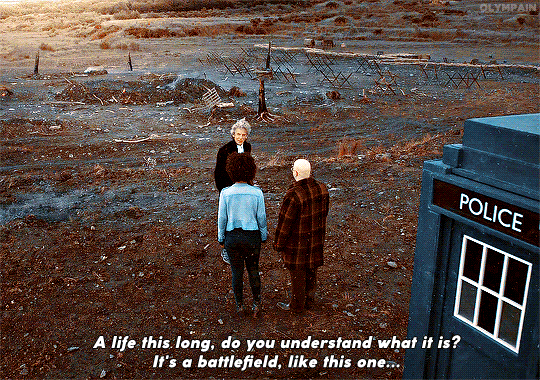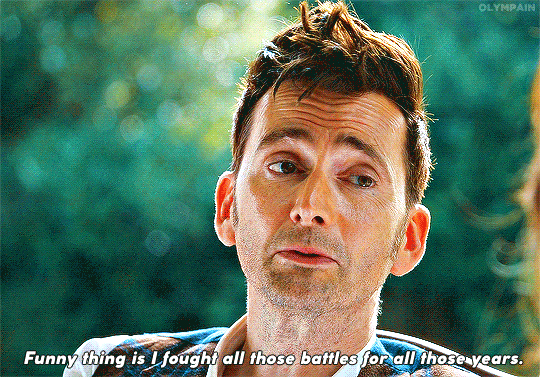#matt winning
Explore tagged Tumblr posts
Text
I can’t believe that Matt Murdock, Karen Page, and Frank Castle had an onscreen threesome in the season one finale of Daredevil: Born Again…
#polyamory for the win#ddba spoilers#daredevil born again#daredevil#daredevil spoilers#the punisher#matt murdock#karen page#frank castle#karedevil#kastle#fratt#kastledevil#<- is that a thing?#we’ll make it a thing
2K notes
·
View notes
Text

This scene felt like I was already roadkill on the side of the road and then someone came by and bashed a shovel over me instead of unsticking me from the pavement and now I'm more of a mess than I already was and I've just gotta live with that
#i'm never gonna get over this scene cause WHAT!!!!#this is how mattfoggy can still win#matt murdock#foggy nelson#mattfoggy#daredevil#daredevil born again#daredevil spoilers#ddba#ddba spoilers
2K notes
·
View notes
Text
They are giving me THE duo back idc if it's for literally just one scene I'll take it

#some of you lost last season but I ALWAYS win#daredevil#jessica jones#this is a STRICTLY PLATONIC POST#she finds him annoying but knows he's a nice person#he thinks it's funny that she ginds him annoying#they are reluctant friends that's the fun part Matt is never reluctant friends with a woman
1K notes
·
View notes
Text
that was so homoerotic for a second there i forgot this was marvel disney and frank and matt weren’t gonna fuck nasty at the end of it
#they hate to see gay people win :/#disappointed but not surprised ig#truly had me on the edge of my seat screaming at the tv#my 2022 fratt era is coming back with a vengeance i apologize in advance#daredevil#daredevil born again#ddba#daredevil spoilers#daredevil born again spoilers#ddba spoilers#matt murdock#frank castle#fratt#frankmatt#mattfrank
2K notes
·
View notes
Text
J.K. Simmons returns as Stanford Pines!!!
Ford reads thirsty comments!
#gravity falls#gravity falls livestream#the book of bill#book of bill#stanford pines#ford pines#grunkle ford#stanley pines#stan pines#grunkle stan#grunkle stunkle wins the funkle bunkle#bill cipher#billford#?#j.k. simmons#jk simmons#alex hirsch#matt braly#kristen schaal#jason ritter
2K notes
·
View notes
Text

#how does it feel to win#rip foggy you would have loved fo see frank make matt cry#daredevil#frank castle#matt murdock#daredevil born again#fratt
888 notes
·
View notes
Text










pt.40!! <pt.39 pt.41>
For the record, i know dick all about medicine and am entirely trusting the opinions of medical nerds on reddit and my unemployed friend who thinks he “would probably do fine as an army medic it can’t be that hard”
tags for the homies ❤️ @andrewsleftarmband @blurryhour @you-know-i-get-itt @notexactlythatgirl @longspacerat @tessasilverswan @minyard-05 @carbon-dated-gal @bisexualchaosdemon @stormiiflies @watercoloureyes01 @vampire-overlord @iron-sides @azure-wing @buffalo-fox @ohgodnotagainplease @pink-hydrangea @jaywalkerss @ohmynoggin-blog @cosmic-marauder @min-getoutofmy-yard @plazybones @disastersappho @leestars13 @the-witch-forever-lives @minyardsss @post-historical-posts @andabuttonnose @hidinginmyhands @aftg4l @allfor-thegames @kaleidoskuls @inafieldofstarflowers @snowcoming @mooniism @jeanmoreausautismstickers
#looking like andrew is winning for the next q and a so i will get cooking in the name of democracy#aftg#aftg socmed au#neil josten#seth gordon#dan wilds#katelyn mackenzie#matt boyd#jean moreau#cat alvarez#jeremy knox#laila dermott#renee walker#nicky hemmick#allison reynolds#aftg social media au
884 notes
·
View notes
Text
The way he just fucking took it….
Brattysubbrattysubbrattysubbrattysub£~€]*[
#matt sturniolo#matthew sturniolo#matt sturniolo smut#sub matt sturniolo for the win#bratty sub matt livings in my head rent free#sub matt sturniolo#nick sturniolo#nicolas sturniolo#chris sturniolo#christopher sturniolo#sturniolo triplets#sturniolo smut
1K notes
·
View notes
Text
ranking the new who doctors in order of how lesbian they are:
1. peter capaldi
2. christopher eccleston
3. jodie whittaker (i haven’t actually seen her series yet, this could go up)
4. david tennant
*significant gap*
5. matt smith
*this is based purely on vibes
#they are all lesbians but some of them are winning at it idk what to say#doctor who#new who#dw#9th doctor#ninth doctor#christopher eccleston#10th doctor#tenth doctor#david tennant#11th doctor#eleventh doctor#matt smith#12th doctor#twelfth doctor#peter capaldi#13th doctor#thirteenth doctor#jodie whittaker#mine
2K notes
·
View notes
Text






#Welcome Back Jonah Simms
#i love the dumb idiot who wins over the annoyed girl#cinematic parallels#poetic cinema#1x1#superstore#st denis medical#love#jonah x amy#simmosa#matt x serena#Mekki Leeper#Kahyun Kim#ben feldman#america ferrera
437 notes
·
View notes
Text





THE STUDIO 1.03 | The Note
#c*#thestudioedit#mayamasonedit#mattremickedit#tvedit#kathrynhahnedit#anthonymackieedit#<- kinda sorta#the studio#tv#maya mason#matt remick#anthony mackie#userairi#userhella#useralf#usertina#userbuckleys#bladesrunner#usercamena#userwintersoldado#userant#usergiu#usereus#how is this show bright and dark at the same time i cannot win here#i promise there are other things that are great besides kathryn about this show#and i will gif them#but i cannot *not* gif her
265 notes
·
View notes
Text
Anyone ever think about cocky Matt telling you that you can't handle the Devil? And then you prove him wrong by goading the Devil straight out of him and bringing him snarling to his knees for you? Because I'm working on something different than my usual smut for Tuna-Tober right now...

549 notes
·
View notes
Text
Neil in a “my kink is karma” t shirt
#that song is SO the foxes winning against the ravens and Riko getting shot#Neil smiling after seeing Riko die#people say I’m jealous but my kink is watching you ruining your life#people say I’m jealous but my kink is KARMA!!#It's hot when you're going through hell And you're hating yourself#It's hot when you know that you're caught And you're getting pissed off#it’s getting me off#Neil josten#aftg#all for the game#all for the gay#riko moriyama#Kevin day#andrew minyard#twinyards#aaron minyard#andreil#nicky hemmick#dan wilds#matt boyd#renee walker#allison reynolds#jean moreau#Jane rereads aftg#psu foxes#bookish#book blog#booklr#jane speaks
415 notes
·
View notes
Text








Twice Upon a Time (2017) The Giggle (2023)
#dwedit#timelordgifs#dwgif#doctor who#dw spoilers#peter capaldi#david tennant#14th doctor#12th doctor#donna noble#catherine tate#bill potts#pearl mackie#matt lucas#nardole#original#*gifs#any excuse to gif 12th is a win for me
3K notes
·
View notes
Text
hey shake a leg!!! it's mr. edd!! (world)



months old js doodle I found (and struggled) to color on ibis.
I luve u edd world....edward world

#eddsworld#su episode ref...#eddsworld tom#ew tom#edd eddsworld#ew edd#ew matt#eddsworld matt#ew tord#EWW GET THAT TAG OUTTA HERE!!!#tordtomedd except its like rose greg rose and pearl from SU... do you see the vision..#you'd BETTER because thats the only time ill acknowledge tordedd ..or.. tord in general#i JUST THINK they'd bw having an unessecary tug of war with him when REALLY edd has TWO hands#like Tom wins in the end ofc but yk.. lil bit of UMPH..#waiter matt... waiter jon...wanted to draw the other ones...no space</3#after this btw edd busts his ass and breaks his tail bone idk why big unc is on the table SOEMONE GET HIM DOWN!!!!!#ik this is really simple and flat colored but in my defense uhhh erm uhhh ermmmm#ew jon#sighhhh jon..ew...ew jon..#eddsworld edd#ew art#tomedd#low-key...highkey....low....high
213 notes
·
View notes
Text
smooch post
you guys asked for this

ft. smooches i drew from forever ago all the way to a smooch i drew yesterday (dumb gif above) for yall



oh yeah this one time i wanted to try doing a lineless art style and then i liked them so much that i just redrew them in my normal style so here's those while im at it





eugh. anyways

#was a little worried when i saw this winning on the poll tbh bc im not very confident in my smooch drawing capabilities#but thats what i get for putting it on there lmao#btw if u think u know me irl. no u dont#i do NOT spend my time drawing fictional witch boys kissing you are NOT looking at me you do NOT know me#the owl house#owl house#toh#toh fanart#the owl house fanart#gus porter toh#gus porter#gustholomule#matt tholomule#mattholomule#things i drew
256 notes
·
View notes